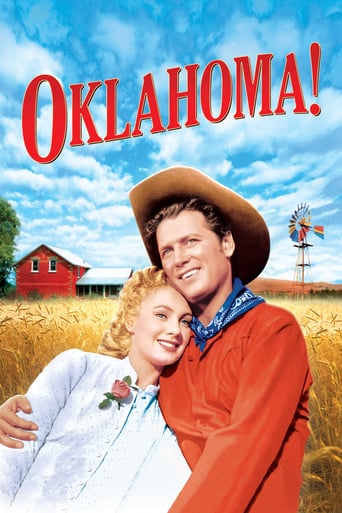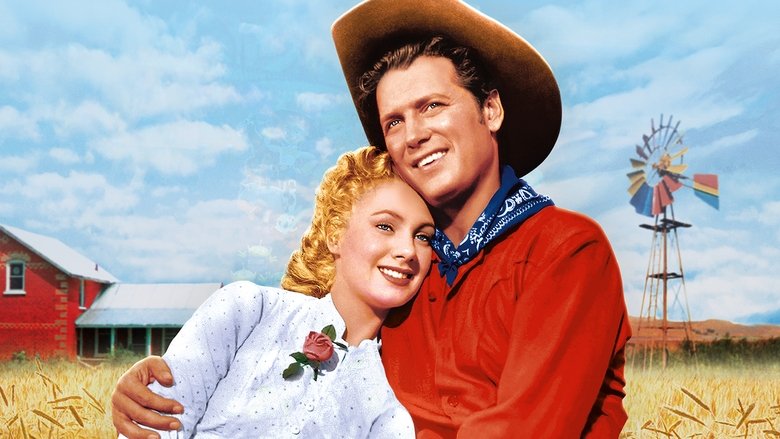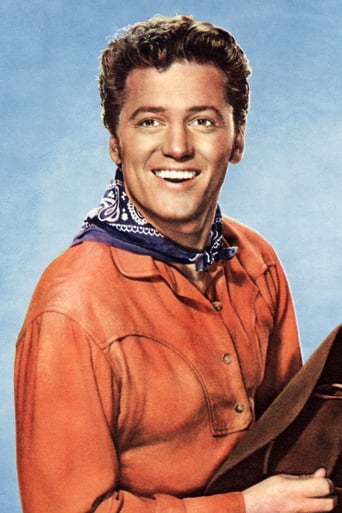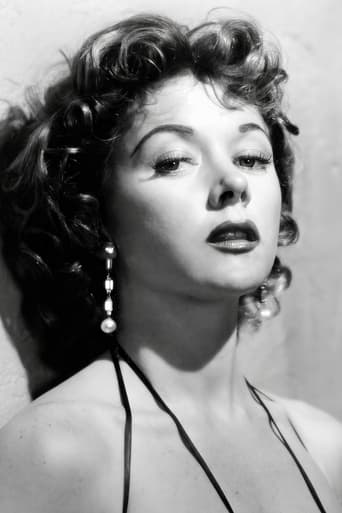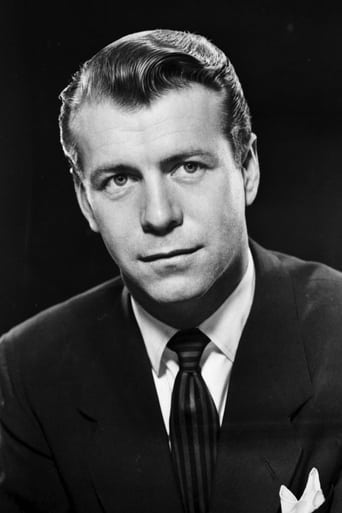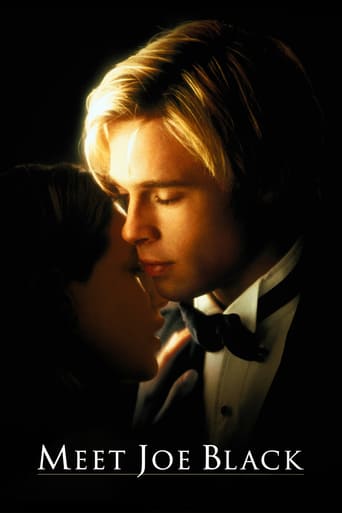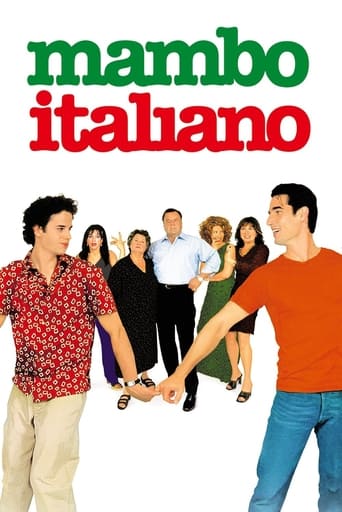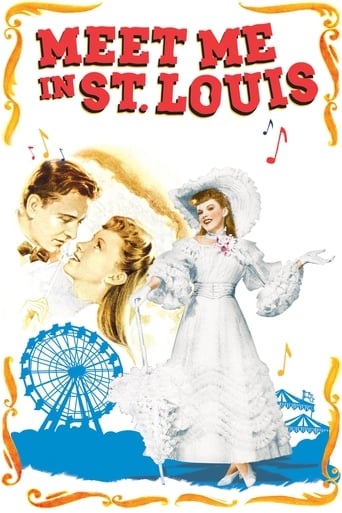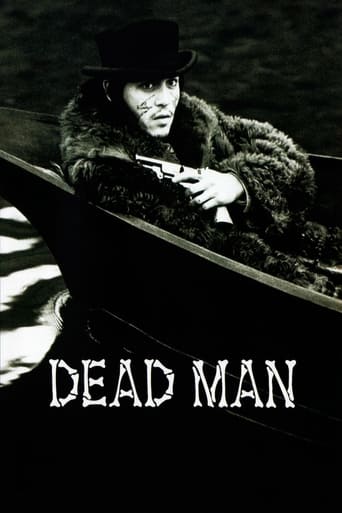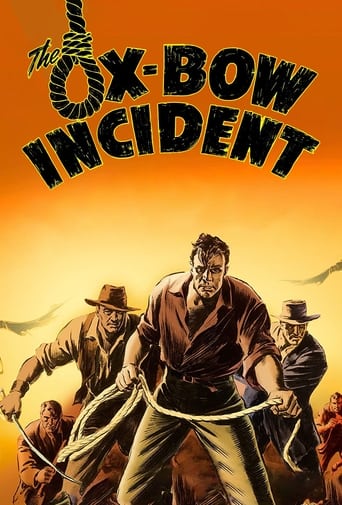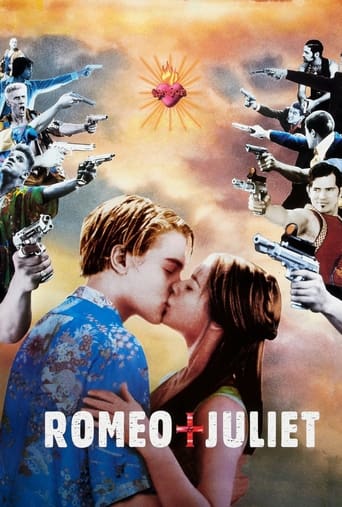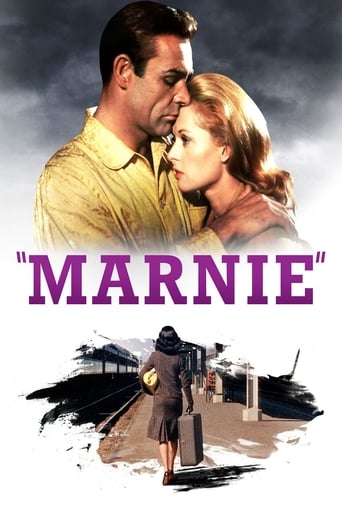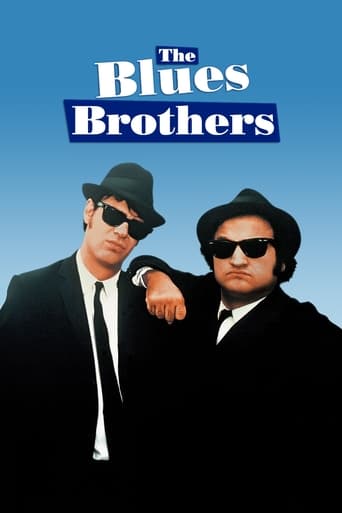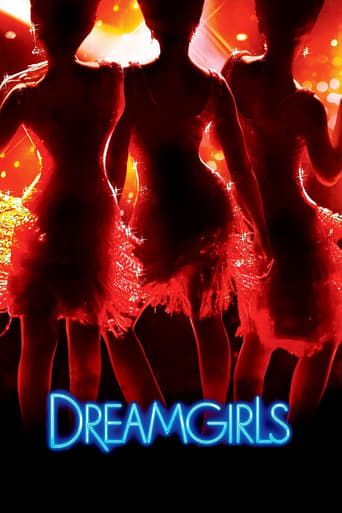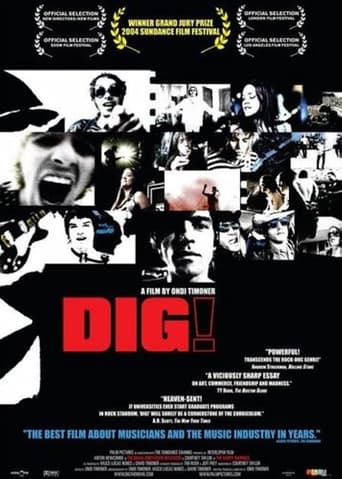Oklahoma! (1955)
In the Oklahoma territory at the turn of the twentieth century, two young cowboys vie with a violent ranch hand and a traveling peddler for the hearts of the women they love.
Watch Trailer
Cast


Similar titles
Reviews
I already had the DVD version,but I bought this combo Blue -Ray -DVD version.It was remastered better than old DVD version.The Todd A.O. print was more sharper than the DVD version.The cinema scope version is very colorful,it came from a surviving Technicolor print. What interested me were the two shorts The miracle of Todd A.O. and the more interesting the March of Todd A.o.,which was made in 1958.The only problem was that the Todd A.O. was not presented in Smile box,like it should have been.This made the two shorts less effective in show.The Murdoch video did demonstrate a few scenes in the documentary in Smile box and compared it too CinemaScope,but, that's it.Obviously Fox is not impressed with it .in spite of this it still excellent It also contains excepts form a 1954 t.v special with Gordon MacRae and Florence Henderson singing excepts from the musical.This all makes it worth collecting or up grading old DVD 02/2/15 As of 02/2/15.Warning The DVD version of the Todd A.o. version of Oklahoma is terrible .It's muddy and not sharp.A letter from Fox on amazon stated that they used the elements form 1998 and it has deteriorated .Thy tried to fix it as much as they could.Why didn't they used the same elements for Blu- Ray on the DVD too? To get people who have not bought Blu -ray players to buy them.My older 2005 print from DVD is better .As of 02/02/15.My older disc is 1998 and it's as not sharp neither.This is the print they are using in this set.Why didn't they use the newer elements for the DVD too ,not only the Blu-Ray?
Oklahoma stands as the perfect example of how musical used to be. With les mis, phantom and Evita experimenting with the darker side of music and tone of morgen musicals, Oklahoma goes for the classic style of charming the audience with innocence. A method done to pure perfection. Let's take things one at a time.Gordon Macrae has one of the finest voices of any movie soundtrack. Fact. It maybe lacks the intensity of some singers, but it's something and Oklahoma is him at his finest. Shirley jones has a heavenly voice and plays the innocent character of Laurey very well, especially for a debut. The music, with some exceptions is strong throughout. It isn't epic like phantom, but each is played for humour and charm and is finely pulled off. The vocals with the exemption of a girl who can't say no are brilliant and the Kansas City number gives us a lovely dance number. (I will quickly add about the girl who can't say know it's played for humour and is very funny so the terrible vocals can be forgiven) This film also has wit. And a lot of it. It knows exactly how to be funny and will tickle your funny bone nearly every minute. It also has a lot of what I call anti-Wit. That's wit that comes from characters being stupid. There is nothing funnier that an idiot trying to use logic and Oklahoma uses this weapon in epic fashion I have to give a special mention to the peddler. Funniest character ever! For an actor to display such charm and likability to such a vile con man is a master class in acting but is often overlooked. Oklahoma has its problems. The ballet is too long and I've mentioned girl who can't say know. I personally like my musicals to be a little more complex and darker. But for a feel good film? For charm? Oklahoma. OK!
Lorenz Hart was Richard Rodgers first lyric writing partner. Oscar Hammerstein 2nd was Richard Rodgers second lyric writing partner. The world would probably never have had Oklahoma if Lorenz Hart had not refused to write the lyrics with Richard Rodgers because at that time Mr Hart wanted to go off to Mexico, he didn't think he could write lyrics about country folk.So wasn't it a wonderful coincidence how at that moment in time, that Oscar Hammerstein 2nd had read the same book as Richard Rodgers Green Grow the Lilacs by Lynn Riggs. Both of them thought of how this homespun piece of pure Americana cowboys would make a great subject for a very different type of musical play they wanted to collaborate on, where by the songs were character and plot driven. And the rest is musical history.Oscar Hammerstein 2nd always wrote the words "first" to all of the musicals he and composer Richard Rodgers wrote. My heading says that they don't write musicals like this any more, and they don't, because they haven't got the writers, is spot on. Gone are the days of tuneful melody, and mature easy to listen to words.Oscar Hammerstein 2nd was a craftsman at writing lyrics, Equally so was Richard Rodgers at coming up with a suitable melody.Oklahoma was their first musical, originally entitled "Away we go", but soon changed to what we know today.....Oklahoma is simply Joyful brilliance, it leaves you feeling happy inside. You will hum the tunes going into the theatre, and leaving.We will never see or hear the likes of Richard Rodgers or Oscar Hammerstein 2nd again.
Remember, the stage version opened on Broadway in '43, in the midst of WWII, when the war was beginning to turn in the favor of the allies. There were quite a few musicals during that period that incorporated 'love America' themes or songs. Also, when this film version was released, the US was feeling on top of the world, now that the Korean War was also a memory. Thus, a musical that espoused an overall very optimistic feeling about the future was appropriate for both time periods. The US was then functioning as the breadbasket of the world, with ever increasing yields of various crops, due to a combination of breeding, more fertilizer, pesticide and irrigation use and more mechanization. The Midwest was no longer in the throws of the '30s dustbowl. So, why not make a joyful musical about Midwestern ranchers and farmers. The perennial theme of young love would be fused with the theme of a new state (Oklahoma) being born(in 1907).The one fly in the ointment of all this euphoria appears in the form of the sexually-frustrated hired hand Jud(Rod Steiger), who lacks the looks, personality and status to make a hit with the local young ladies, thus imagines making it with French hussies, such as those pictured on the wall of his smokehouse abode. He also dreams of making it with the prim beautiful niece(Shirley Jones as Laurey) of his employer((Aunt Eller). He gets his chance when coy Laurey and her boyfriend Curley(Gordon MacRae) have a spat. But, later, we find out just how much fear and hatred Laurie feels toward Jud as a potential romantic partner, both in her long dream ballet sequence, and during their actual ride in a buckboard to the box social. In the latter, their fighting causes the buckboard horse to run wild, and she takes over the reigns and leaves Jud in the 'dust'. Later, while the others are celebrating the marriage of Curley and Laurie , Jud is planning to spoil their happy nuptial night. when as part of the nocturnal festivities, the two climb on top of a high haystack. Jud sets the stack on fire. As he pulls out a knife, Curley jumps on top of him, and he falls on his knife from the impact...Steiger would play a very similar character just the next year in the non-musical western "Jubal", where his death is not shown, but suggested at the end...The scene where Curley goes to chat with Jed in this stronghold of the smokehouse is very strange, to say the least. In the first portion, Curley makes a hanging rope and speculates what might happen at his funeral, should Jud decide to hang himself, painting a relatively favorable impression of Jud. He sings "Poor Jud is Dead", and Jud even chimes in toward the end. This is an example of how the songs were well integrated into the screenplay. Jud recounts how someone(him?) set the house of his former employer on fire, killing all. Eventually, Curley turns antagonistic, and Jud ends the scene by firing a shot into the ceiling, as a proxy for Curley....Was Jud inherently a crude menacing man or was he just reacting to his treatment by others as an apparent born loser? The two tend to reinforce each other. He comes across as having been a bully as a boy.This was Shirley Jones's first film, she being part of the Rogers and Hammerstein play crew. She plays the prim, hard -to-get beauty, contrasting with Gloria Grahame's shy, but fun -loving 'easy' girl character: Ado Annie, as well as with the aggressively flirtatious Gertie. Both get to sing several memorable songs: "I Can't Say No" being Gloria's signature sing.. Gloria was a very strange choice for a film where she sings a solo. She was tone deaf! Thus, her singing had to be pieced together note by note! The well-known Betty Hutton was actually the first choice for her role, but turned it down. No matter, Gloria worked out just fine.Gene Nelson, who plays Ado Annie's chief boyfriend, had been included in a number of musicals, often teamed with MacRae, who was the main singer, while Nelson was the main dancer. However, Nelson could also sing tolerably, as shown in this film. He also gets to dance a bit in the early part. However, he doesn't get to be the lead dancer in the dream ballet sequence. Rather, James Mitchell takes Curley's place in this sequence, while Bambi Linn takes Laurie's place. This is similar to the replacement of most of the original personalities by facsimiles, in Gene Kelley's dream ballet, in "On the Town". I remember Mitchell as Cid Charisse's stone-faced dance partner in their cameo dance in "Deep in My Heart". Here, he also mainly functions to support Bambi's movements. The bizarre dream ballet is more interesting than that in "On the Town", incorporating most of the songs up to that point, and soon turning nightmarish, dominated by Jud and his imagined French dancer floozies, with Jud killing Curley to claim Laurie...Unfortunately, "Oklahoma" is the only significant film record of the talented choreographer Agnes de Mille: niece of director Cecil.Charlotte Greenwood , as the matriarchal Aunt Eller; Laurie's guardian, is another example of the perfect casting. At age 65, she had been in theater most of her adult life, as a vaudevillian talent. She helps maintain a degree of sanity among the romancing younger generation, while getting to sing a bit, although not getting to exhibit her trademark sideways high kick, seen in some of the Fox musicals of the early '40s. MacRae and Shirley would soon be reteamed in the generally darker-themed R&H "Carousel", with fewer memorable songs, but several of these perhaps even more memorable than those in this film.

